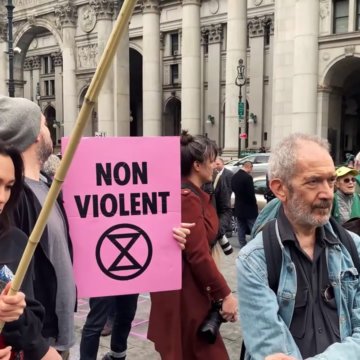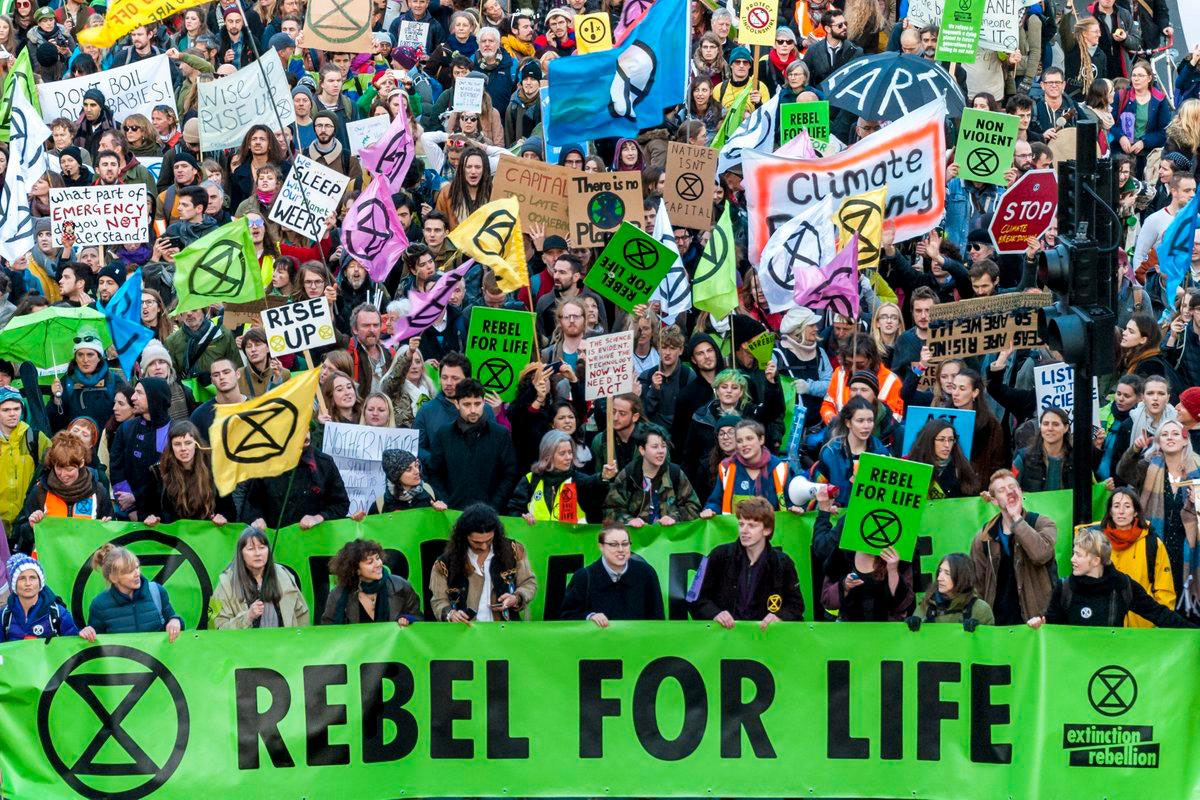- About
- Topics
- Picks
- Audio
- Story
- In-Depth
- Opinion
- News
- Donate
-
Signup for our newsletterOur Editors' Best Picks.Send
Read, Debate: Engage.
| topic: | Human Rights |
|---|---|
| located: | USA, United Kingdom |
| editor: | Yair Oded |
Over the past couple of weeks, Extinction Rebellion (XR) members embarked on a wave of protests in over 60 cities around the world. From New York and London to Buenos Aires and Mumbai, XR protesters conveyed the message that they refuse to sit by idly and observe the utter ecological destruction of our planet. XR’s overall message is twofold - calling on media agencies to engage in truthful reporting on the climate emergency, and for authorities to take immediate action to curb emissions and prevent the worst-case scenarios of climate change.
In New York City, where XR set roots merely two months after establishing its first centre in London, the organisation sparked a week of various protests with a massive rally in Manhattan’s Financial District on Monday, October 7. Hundreds of protesters flooded the streets and staged several die-ins, one of which took place at the feet of Wall Street’s charging bull statue.
According to The Intercept, of the 700 arrests of XR protesters made by police forces globally that Monday, 93 were made in New York.
In the following week, members of XR New York held a sit-in at Columbia University (where they also blocked an intersection) and tied themselves to a boat parked in the middle of Times Square.
The consensus among XR members, at least in the mainstream factions of the organisation, is that arrest is the only non-violent way to demonstrate their resolve and conviction, and get both the authorities and the public to consider their demands seriously. As George Monbiot, an XR UK member, wrote in an opinion piece for The Guardian, “We cannot buy television channels and newspapers, pour billions into political lobbying or seed dark ads on social media. We have only one strength: our vulnerability. By putting our bodies on the line and risking our liberty, we make this great neglected issue impossible to ignore.”
This line of thinking, however, elicited a fair amount of criticism towards Extinction Rebellion, as people claimed that getting arrested is largely a white, middle-class privilege that members of other communities - such as ethnic minorities and immigrants, who bear the brunt of the climate breakdown - simply don't have. Many have argued that XR does not take into consideration the voices and struggles of these silenced, vulnerable communities.
Yet, following the barrage of criticism, the issue of inclusivity has been addressed more frequently on the XR agenda, something that is certainly visible in New York City. At the helm of the October 7 rally in downtown Manhattan, was 20-year-old Ayisha Siddiqa, a Pakistani immigrant. Speaking into a megaphone, Siddiqa told the crowd about the power outages and deaths her family in Pakistan endure due to climate change, stating that such catastrophes are only going to increase globally unless drastic environmental action is taken.
Furthermore, one of XR New York’s most vibrant neighbourhood-based chapters is in Kensington, Flatbush - a predominantly Southeast Asian neighbourhood of Brooklyn. The group has slowly been attracting more members of the local community but, even there, the overall sense remains that the messages communicated do not address the specific needs of locals.
While XR labours to expand its reach and incorporate a more diverse range of communities in its ranks, it is important to recognise the tremendous importance of this organisation’s work and acknowledge the members’ priceless contribution in shining the limelight on our world’s existential crisis.
As police forces and governments across the world crack down on XR protests, often violently, and mount legal and procedural challenges in order to prevent its members from assembling, it seems that the organisation is taking on a multi-faceted fight: preserving our planet, our democracies, and our human rights.

